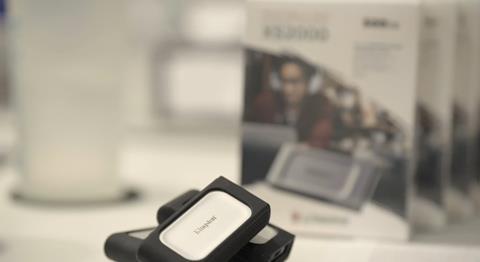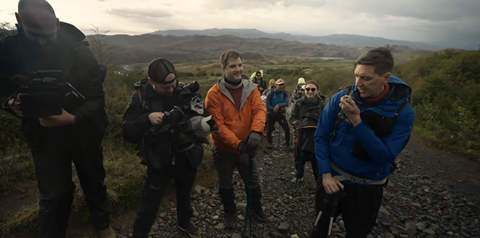The production company switched from HDDs to solid-state drives to dramatically ramp up the speed of uploading film footage

Production company Dash Pictures has partnered with Kingston Technology to help it solve delays during production and post-production.
It has upgraded from HDDs to Kingston SSDs, which has transformed the speed the company can upload film footage, and also expanded capacity, enabling production teams to collaborate more efficiently.
Problems came to light during shooting for a recent travel show with Oliver and James Phelps (who played the Weasley twins in the Harry Potter franchise movies). On season one of their show Fantastic Friends, Dash found they were struggling to back-up the footage overnight on traditional hard drives after a long day of filming.
Daniel Sharp, director at Dash Pictures, said: “We had spent a long time developing the workflow for Fantastic Friends, so we could execute it to a very high standard and make it cost efficient. But it’s not great to start a new day of shooting knowing that everything we did the previous day is not yet safely backed up, and it was compounded further down the line causing limitations in our production pipeline.”

Dash Pictures turned to Kingston Technology, which specified XS2000 external solid-state drives with a 10Gb connection capable of supporting multiple activities and enabling lightning-fast transfer speeds.
These portable drives, equipped with a detachable, ruggedised sleeve for drop protection and the ability to withstand water and dust, are exceptionally well-suited for on-location film and TV productions.
They enabled Dash to efficiently duplicate camera media onto multiple drives simultaneously, significantly improving the time required for this task.
Having improved the management of their data during filming, Dash then evaluated how they could speed up the process of uploading on-location footage on the drives into the post-production studio.
Kingston Technology worked with Dash to provide data centre-grade SSDs that would connect directly into the company’s centralised QNAP Network-Attached Storage (NAS) device.

Matt King, head of post production at Dash Pictures said: “We plugged 12 Kingston SSDs into our RAID-array QNAP Network-Attached Storage device and almost instantly saw a change in how quickly our data could be uploaded and how it could be accessed without delays, drop-outs and with the ability to bring in grades. It meant film editors, graphic designers and visual effects teams could all work from the same server simultaneously without any degradation, vastly improving efficiency.”
Kingston assisted in setting up the system to meet Dash Pictures’ current requirements but ensured that the system was future-proofed so they could easily expand it with new Kingston SSDs in the future to add capacity as and when it was needed.
“Our processes, both during filming and in post-production, are now much slicker,” said Sharp. “Using HDDs, we might have been able to work on two shows at the same time, but now we have multiple shows overlapping. We are growing more quickly and if we need to expand our data capacity, we can just add another SSD into our system, plug it in, and off we go.”







No comments yet